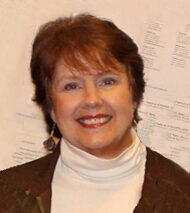
Nancy Huntting, Aesthetic Realism consultant, writes:
“The Kind Power of Questions” is the exciting subject of the new issue of TRO. The ability to ask questions, you’ll see, is much more valuable than one may realize! And you’ll learn, too, why this ability has often been misused. Clear, kind questions that enable us to understand ourselves and other people were asked in lessons Eli Siegel gave—and are asked now in Aesthetic Realism consultations—and their importance for humanity is tremendous! Read “The Kind Power of Questions,” the current issue of The Right of Aesthetic Realism to Be Known.
The commentary by Ellen Reiss begins:
Dear Unknown Friends:
Here is part 2 of the very important and surprising lecture by Eli Siegel that we are serializing: Hamlet and Questions, of 1976. In it, Mr. Siegel speaks about the meaning of questions, and their rich presence in literature and life.
Principles Are There
The principles of Aesthetic Realism are true about questions. Those principles are true about how we question ourselves and others, and how we meet questions—and about the very existence of questions.
For example: the human ability to ask questions arises from what Aesthetic Realism shows to be the deepest purpose of a person: “to like the world through knowing it.” To form and ask a question is something that, of all creatures, only the human creature can do—for we have in us those tributes to and representatives of the world which are words. Certainly other animals are to be loved, admired, wondered at. And they too have a drive to find out things—like who may be approaching; where can food be gotten; where a valued item is. But they do not have that relating of oneself and the outside world with a certain abundant particularity and communicability that only words provide.
We come to another principle. While the ability to ask questions arises from our deepest and best desire—“to like the world through knowing it”—we also have an opposed desire, and it affects what we do as to questions….Read more